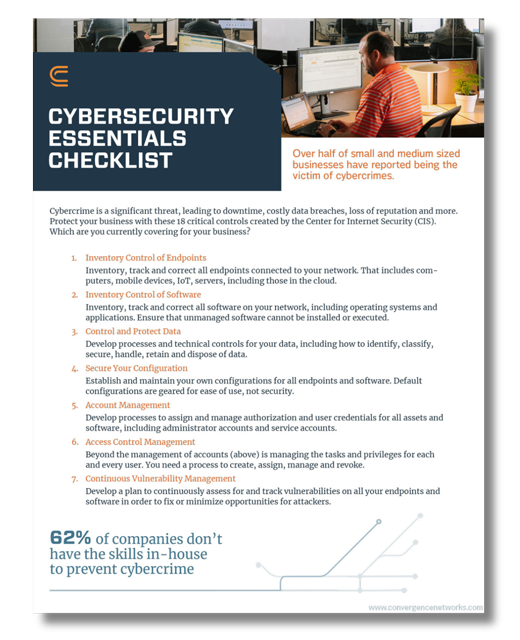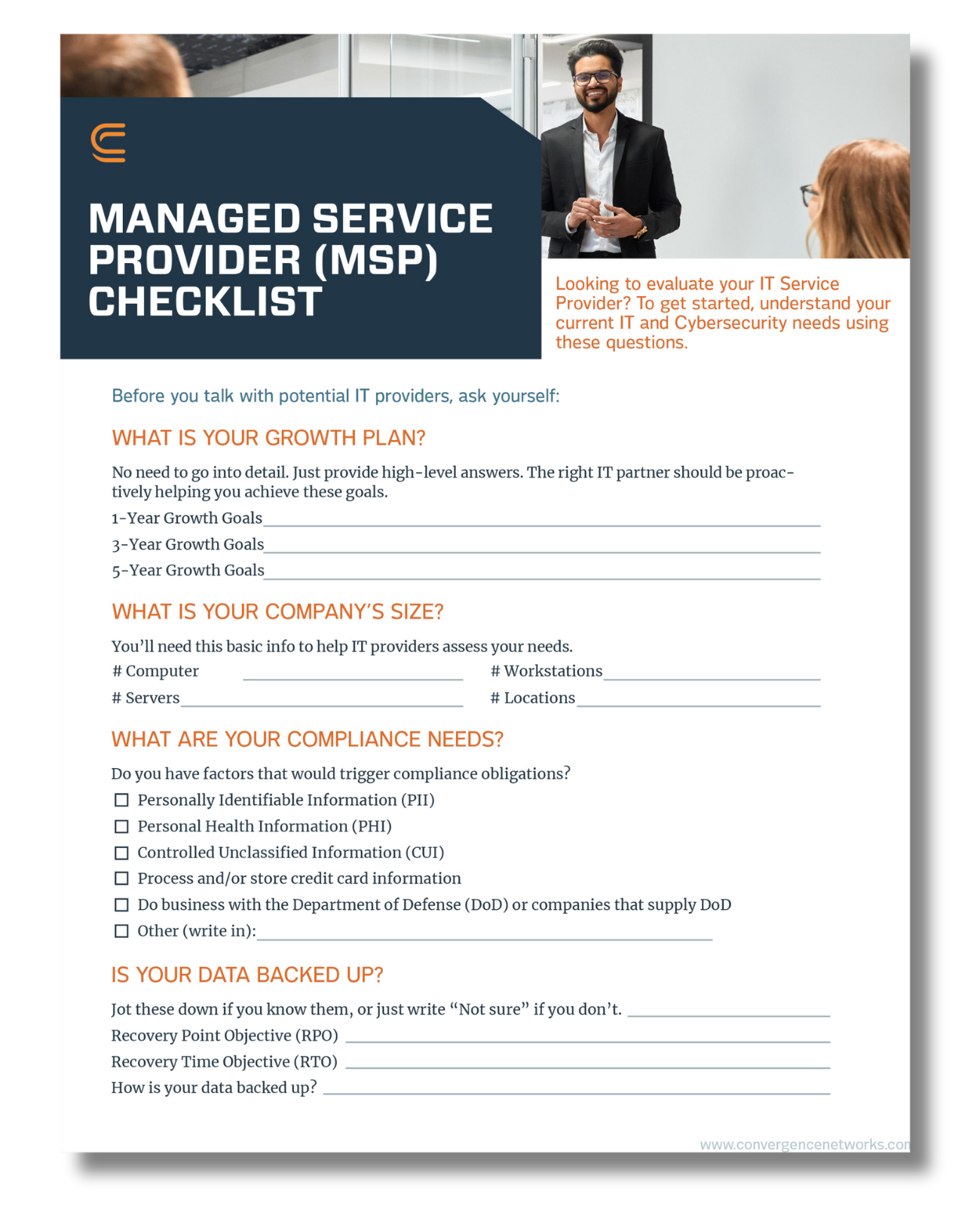Two of the most dominant cloud architectures, Microsoft’s Azure and Amazon’s AWS, are both strong contenders for running your business. But which one is right for your company? As a managed service provider, we have experience with both systems. In this article, we’ll discuss exactly what you need to know about Azure vs AWS when deciding which is best for your company.
What Are Azure and AWS?
Azure and AWS are cloud architecture platforms designed to build, run and manage applications over various clouds, and each offers over 200 products to choose from. While Amazon’s AWS has been around since 2006, Microsoft’s Azure launched in 2010, but there is some debate between which cloud architecture is superior.
Here are some key takeaways from both services:
- Both can use Linux distributions
- Both use open-source software (OSS) solutions
- Both offer global coverage
- Both support constructing widely available solutions on Linux or Windows hosts
Azure and AWS are used to assist governments and businesses resolve IT issues across the globe. Both are considered dependable, unshakable and flexible, adapting to their customers’ needs and ultimately assisting government institutions and corporations to solve a variety of logistical and social challenges. Companies like Netflix, Facebook and Uber rely on these cloud architectures to operate effectively and efficiently.
Questions When Considering Azure vs AWS
You might have some burning questions when it comes to picking a cloud architecture, like:
- How much investment is required?
- What is the storage capacity between the two?
- Do they support hybrid cloud service?
- What do the security options look like?
- Can I use a combination of both platforms?
The answers to these questions entirely depend on your business’s unique situation and specific needs. Here is some valuable information about both platforms:
- On the investment side, Azure offers a free trial and a per minute model, while AWS offers multiple pricing options (charge per hour, free trial, free trial per minute, etc.).
- Both Azure and AWS support hybrid cloud service, but Azure is considered stronger than AWS for this category.
- Azure offers 140 availability zones, while AWS offers 61 availability zones.
- Azure provides express routes, while AWS provides direct connection to its services.
- Azure’s security is provided by offering permissions on the whole account, while AWS’s security is provided using defined roles with permission control options.
- Azure has a virtual network cloud, while AWS has a virtual private cloud.
Let’s break down the decision-making process into different categories to consider.
Storage
- Azure uses what is referred to as the “storage blob,” which allows developers to store unstructured data in the platform. Storage blobs are grouped into “containers” and are ultimately stored quickly and coherently.
- AWS utilizes S3, or “simple storage service,” to store any amount of data, making it widely considered scalable and a top choice for businesses of all sizes. It can archive storage via Glacier and IA (Infrequent Access).
Computing
- Azure infrastructure management is taken care of by Microsoft. As a result, users can expect faster processing speeds.
- AWS has elastic cloud computing, or EC2, to manage infrastructure across many different machines, making this method more configurable. However, these configurations are mostly used exclusively by big data centers.
Networking
- Azure uses a VPN gateway for cross-premises connectivity, and manages the VPN with an application gateway and load balancer.
- AWS utilizes a private cloud and an API gateway for cross-premises connectivity. To load-balance during networking, they use elastic load.
Open Source Developers
- Azure allows current enterprise users to access the current active directory account to sign into the Azure cloud platform. It runs the .NET framework on Linux, Windows and MacOs.
- AWS uses Linux and can integrate with other open source applications.
Deploying Apps
- Azure offers multiple app deployment options, including but not limited to container services, batch and cloud services. Deployment is performed on several servers virtually using PaaS (or platform as a service) features.
- AWS operates similarly, using batch and Elastic Beanstalk, among other solutions.
Database
- Azure uses MySQL, PostgreSQL and SQL databases as well as CosmosDB for NoSQL solutions and RedisCache for caching.
- AWS uses a relational database as a service by using RDS. For NoSQL, it uses Dynamo DB and Elastic Cache for caching.
What Are the Pros and Cons of Azure vs AWS?
Now that we’ve broken down the different categories of Azure and AWS to consider, you might be wondering about the pros and cons of each system. Here is some information that will help you:
Azure Advantages
- Fully scalable cloud computing platform that offers open access and supports multiple languages, frameworks and tools
- Contains built-in tools like Azure Stack to help your organization deliver the Azure service from the data center
- Offers total support for Microsoft legacy applications, as well as support for mixed Linux/Windows environments
- Easy one-click migrations
- Enables developers and users to create, maintain and deploy applications
- Provides a greater awareness of enterprise needs
- Offers conversion of on-prem licenses to the cloud
Azure Disadvantages
- You will be charged extra using the “pay as you go” method
- Offers less flexibility for non-Windows server platforms as compared to AWS
- Data is hosted globally and customer service is non-transparent. If you have data restrictions specifying where your data can be stored, as in another country, you must verify and specify directly with Microsoft.
AWS Advantages
- Offers more data centers for low latency and availability
- Trusted by high-profile customers
- Enables freedom of choice for your database, operating system and programming languages
- Offers high transfer stability
- Minimal information is lost during storage and server transfer
- Allows you to expand or retract storage capacity according to your specific needs
- Better DevOps support than Azure
AWS Disadvantages
- Less hybrid-cloud friendly
- Lacks customer support, which means it has been designed for tech-savvy customers and companies that have their own tech support team for troubleshooting
- The variety of choices AWS offers may be confusing to those who don’t speak the programming language or fully understand the technology. This also means the product selection process becomes more complex.
- AWS is a less-open private cloud, meaning it isn’t a great storage method for sensitive data sets and industries like medicine and banking
- Offers an incompatible and weak hybrid strategy
- AWS’s elastic load balancer isn’t designed to handle as many requests as it receives
This might be a lot of information to take into consideration, so here’s a helpful table that breaks down each cloud architecture into digestible chunks.
| Microsoft’s Azure | Amazon’s AWS |
| Virtual network cloud | Virtual private cloud |
| Offers express routes | Offers direct connection |
| Security is accessed by offering permissions on the whole account | Uses defined roles with a permission control feature |
| Machines are grouped into cloud service, respond to the same domain name with different ports | Machines can be accessed separately |
| Offers a free trial and per minute pricing model | Various pricing models, including free tier, charge per hour or free trial per minute |
| Hybrid cloud that integrates onsite servers with cloud instances, and provides better support for hybrid cloud | Offers support for hybrid cloud, but is limited |
| Limited government cloud offerings | Government cloud offerings |
We hope this guide has helped shed some light on the Azure vs AWS debate, and we’re happy to help with any other questions you may have about these cloud architectures.
Convergence Networks experts can help you find the best cloud architecture solution for your business. Contact us to learn more about our managed IT and security services.














